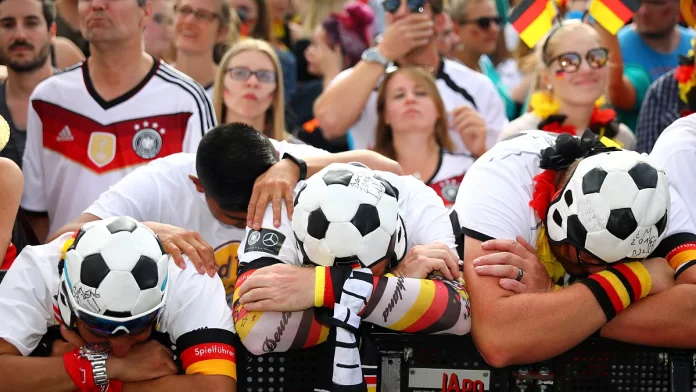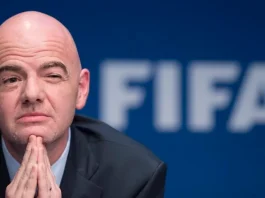UEFA European Football Championship also commonly referred to as EURO is widely considered one of the greatest football competitions in the globe. The event gathers the top squads from Europe, providing the audience with a chance to see an elite-level rivalry and sense the unity of the countries. Yet, choosing a country that has a grim record when it comes to human rights to host such an event is not without danger that is in terms of ethics, functionality, and reputational risks.
Right-wing extremism, antisemitism, and racism seem to be escalating in Germany. In 2021, anti-immigrant crimes surged by 72%, and antisemitic crimes increased by nearly 16%. In this context, we try to identify the key factors that prove Germany with a poor human rights record shouldn’t host this event.
Ethical Concerns
Bringing an International Sporting Event to Germany with a terrible human rights record sends out a very problematic message. It suggests a form of tolerance or obliviousness about the host country’s infringement on the basic rights of the individual. This is especially troublesome as sports are supposed to be a platform that promotes, equality, and fairness.
There have been numerous cases of domestic violence in the country. It doesn’t seem they are ready to take action. Therefore, it proves that Germany cannot uphold the image of such a big event. In May 2021, a court fined a gynecologist €3,000 for providing factual information about his abortion services on his website. This action was taken under a law that criminalizes “advertising abortion.”
Human Right Violations and Athletes’ Safety
Some nations like Germany lack respect for International human rights. Therefore, they have unfriendly laws and restrictive authorities putting the lives of athletes, fans, and journalists in danger. Cases of discrimination, restricting freedom of speech, and in the worst-case scenario – violence against these people can contribute to establishing a hostile environment. Preservation of the lives of all participants in a championship poses quite a problem in such environments.
Reputational Damage to UEFA
UEFA like any other governing association has certain ethical considerations it has to uphold. Deciding to award an event to a country with an uncertain record on the status of personal freedoms can result in angered reactions worldwide. Especially among human rights groups, fans, and the media can turn against the country. This situation undermines UEFA’s credibility because it gives people a negative perception of the organization as far as the promotion of fair play and human dignity is concerned. In 2020, politically motivated crimes in Germany, especially hate crimes, saw an increase. Official statistics indicated a rise in these types of offenses.
Fans’ Experience and Safety
The UEFA European Football Championship is more than a football competition; it is a festivity where fans follow their teams from across the globe. In Germany where human rights are violated, fans may encounter some dangers including detention, harassment, and violence. Also, the general environment may be less friendly, and this will reduce the importance of the fan experience.
Economic Exploitation
Major construction and development projects usually accompany hosting major events such as the UEFA European Football Championship. They include poor working conditions, low wages, and even forced labor, especially in countries like Germany with bad records on human rights. This exploitation is contrary to fairness and equal opportunity, which are the values that UEFA upholds. The economy experienced a slight contraction in 2023, with a 0.3% decline in Q4 2023. The Bundesbank has cautioned that Germany might already be in a recession.
Media Freedom
It is noteworthy that free and independent media can provide transparent and objective coverage of any major sporting event. Germany often disrespects the rights of their citizens and limits the freedom of the media. Therefore, this results in news presentation and availability of information that is not fully valid. There can be a problem in the coverage of the event by the journalists and make it difficult to force organizers to accountability.
In 2021, Germany dropped two places in Reporters Without Borders’ press freedom ranking. Incidents of journalists being attacked by protesters opposing Covid-19 restrictions were documented, and a climate of mistrust, stoked by populist politicians, was noted as a contributing factor.
Potential for Boycotts and Protests
Organizing any event, especially the UEFA European Football Championship, in a country with low standards of human rights is likely to provoke mass boycotts and protests. Organizers, teams, sponsors, and fans may decide not to participate or attend, which is not good for the tournament. Such actions not only have an impact on the host country but also interfere with the essence of the championship.
Compromised Integrity of the Event
The working principles of the UEFA European Football Championship include fair play, respect, and inclusion. This means that by choosing a host nation that does not uphold these principles in its management the credibility of the tournament is called into question. This decision can drive away players, fans, and stakeholders that uphold these values.
Long-term Impact on UEFA’s Brand
As stated earlier, associating UEFA’s brand to a country with a bad record in terms of human rights is not good for the image in the long run. It could disrupt future sponsorships and collaborations with entities that value corporate social responsibility. Therefore, sustaining a positive brand image for UEFA is important in enhancing its sustainability and authority in the international sports industry.
Precedent for Future Host Selections
Selecting a host country with a questionable record for human rights is not very inspiring for subsequent occasions. It may inspire other nations with the same past to seek the right to host, thinking that their human rights situation will not be a hindrance. This is counterproductive to the need to maintain high ethical standards in the current leadership of international sports.
Conclusion
Organizing the UEFA European Football Championship in Germany with a low human rights record involves many ethical, logistic, and branding challenges. Such a decision can put the lives of athletes, fans, and journalists at risk, harm the reputation of UEFA, and go against the principles of fairness and respect that the organization represents. By choosing host countries that respect human rights, UEFA can make sure that the championship fosters not only the competitive spirit but also the rights and freedom of people.




